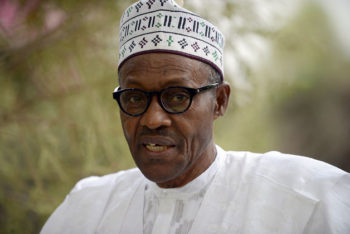
There is nothing more shocking than being freed from a prolonged season of delusive understanding. This veil over understanding is the reason why this generation has come to be known for the false lifestyle propagated in the media, which creates a false impression that is completely different from the authentic reality. It is the propellant that nudges a government to commend itself when the reality points otherwise. Delusion is a terrible thing. Sometimes and usually so, those that live their lives on illusory notions require a really defining event to restore them to reality. A defining event that could have as much impact as a “dirty slap” by a Nigerian soldier is all that is required to return to this hemisphere of realism. And when the one suffering from the delusion is slapped into reality, he should actually thank his benefactor for the slap only saved him from a veiled disaster.
We seem to be living in a delusive state of normalcy in Nigeria when in reality, we are swimming in anomaly. We carry on as if all is well now and will be well in the future. I am optimistic too, but first, let’s juxtapose our optimism with the reality and draw true inferences. According to the World Poverty Clock, by February this year, our dear Nigeria overtook India as the country with the most people in extreme poverty. In 2015, the World Bank offered a more representative definition of extreme poverty as the world’s population that live under the threshold of $1.90 a day (based on the US dollar exchange rate of 2011), which is a little over NGN600 in current Naira to Dollar exchange rate. Prior to this definition, extreme poverty was defined as those who lived below $1.25 (measured in 2005 US dollars).The original $1 a day definition was based onPurchasing Power Parity of 1985 and was predicated on data sourced from eight poorest countries of the world. The Wold Bank puts the figure of worldwide poverty population at around 1.2billion. However, the world generally has made progress by lifting more than 720million people out of poverty in the developing countries since 1981. Report on the Sustainable Development Goals (SDGs) of the United Nations suggests that the global poverty rate has been halved since 2000 when the new direction was instituted. Sadly, whilst the world has made considerable progress, Nigeria is advancing in regression. The poverty population more than doubled from 39.2 million in 1992 to 112 million in 2010. Contrastingly, the Eastern and South Eastern Asia, countries reduced poverty from 35 per cent in 1999 to 3 per cent in 2013, which means you are likely to find 3 poor people out of every 100 population while more than 60 out of every hundred Nigerian is poor.
These are not mere statistics. Look around you and you will find poverty everywhere. To have a clearer picture, all you need to do is divide the 18,000 minimum wage by 30days. The answer will be a little over NGN600. Our daily minimum wage is not even above the poverty threshold! It is no longer news that out of every three Nigerian children, one is malnourished. How then can we possibly think Nigeria’s future is secured with this level of poverty in the country? We fail to understand that the beginning of societal degeneration is when the vulnerable ones no longer possess a sense of belonging in the society.
Yes, successive administrations have formulated diverse social intervention programmes to address the incidence of poverty in the country, but none has been able to achieve the expected goal. Liaoning Province of China recently announced that over 1 million of its 43million population have been lifted out of poverty. China as a country has set 2020 as the year to eradicate extreme poverty from its society. Please what plans do we have to rescue the current population of Nigerians from extreme poverty? We seem not to have a strategic plan rather we live in a delusion that we are doing well, which is the only plausible reason for a presidential spokesman to retort that those complaining of hunger should “go and work”. Sir, please where are the jobs? Is it the same country that has lost more than 6million jobs in the last 3years? What we currently have in this country is an anomaly.
We really need to urgently acknowledge the reality before us that we are not making progress. The positive advantage is that we have the commonwealth to prevent every Nigerian from living in poverty. Our albatross has remained our wealth distribution system, which is unequal, unfair, and apparently one-sided. We need to look at the poor around us, appreciate their helplessness and consciously provide opportunities to lift them out of their current state. This army is too huge to be left in the limbo. An expansive army of poor people in any society is dangerous to the continuous existence of that society. History has demonstrated that.